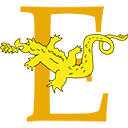From Traditional Auditing to Information Technology Auditing: A Paradigm Shift in Practices
DOI:
https://doi.org/10.5281/zenodo.12819118Abstract
The digitalization of information systems has led to fundamental shifts in auditing practices, replacing traditional manual processes with advanced digital auditing methodologies. This transformation has been accelerated by innovations in cloud technology, enhancing the efficiency and effectiveness of auditing operations. Concurrently, the evolution from document-based to transaction-based audits has redefined the auditing landscape, emphasizing real-time transaction monitoring over static record documentation. This paper explores these transformative trends within both internal and external auditing, with a specific focus on IT audit practices. It provides an in-depth analysis of the distinct objectives and methodologies inherent to IT audits, illustrating their adaptation to the digital era. The study examines the implications of these changes on audit processes, highlighting the paradigm shift towards more dynamic and data-driven auditing approaches. By synthesizing theoretical insights with practical implications, this research contributes to a comprehensive understanding of how digitalization is reshaping auditing practices. It underscores the importance of integrating advanced technologies such as AI, blockchain, and IoT in audit frameworks to enhance accuracy, reliability, and compliance in financial reporting.
Published
How to Cite
Issue
Section
Copyright (c) 2024 The copyright in this website and the material on this website (including without limitation the text, computer code, artwork, photographs, images, music, audio material, video material and audio-visual material on this website) is owned by the European Journal of Digital Economy Research (EJDER) and its licensors.

This work is licensed under a Creative Commons Attribution 4.0 International License.
EJDER grants to you a worldwide non-exclusive royalty-free revocable license to:
- view this website and the material on this website on a computer or mobile device via a web browser;
- copy and store this website and the material on this website in your web browser cache memory; and
- print pages from this website for your use.
- All papers published by EJDER are licensed under the Creative Commons Attribution 4.0 International License. This permits anyone to copy, redistribute, remix, transmit and adapt the work provided the original work and source is appropriately cited.
EJDER does not grant you any other rights in relation to this website or the material on this website, i.e. all other rights are reserved.
For the avoidance of doubt, you must not adapt, edit, change, transform, publish, republish, distribute, redistribute, broadcast, rebroadcast or show or play in public this website or the material on this website (in any form or media) without appropriately and conspicuously citing the original work and source or EJDER prior written permission.




